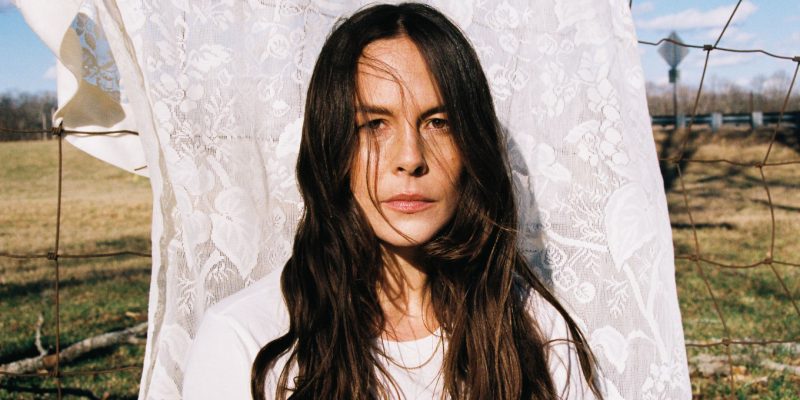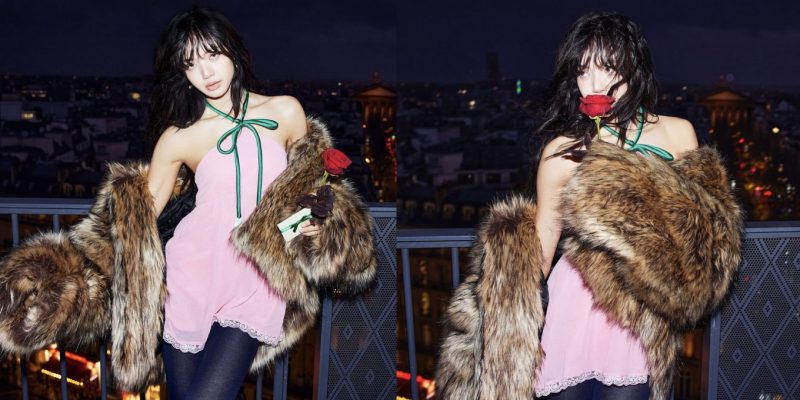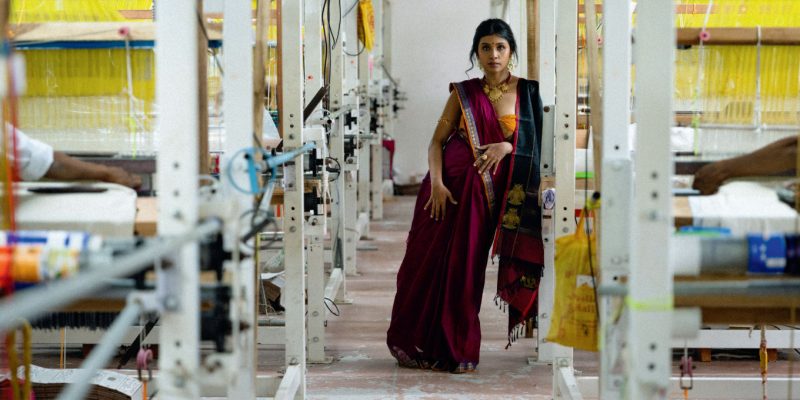Society
Why Some Women Are Turning to Comedy as a Hobby
It’s part mindfulness exercise and part extreme sport.
by : Eve Thomas- Mar 7th, 2024
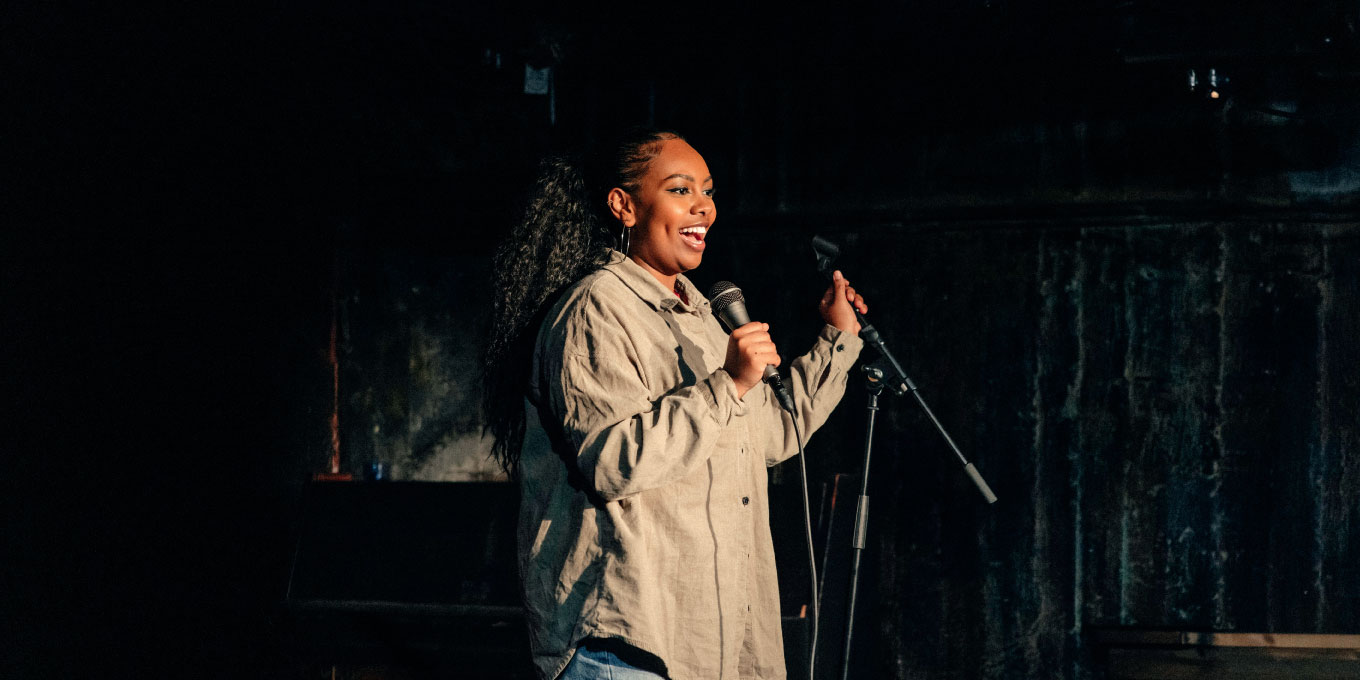
Getty
A woman walks into a bar. She takes to the stage and tells a few jokes. Some bomb; some get laughs. Then she heads home, falls asleep and goes to work the next morning—only to do it all again a few months later.
Would she call herself a comedian? Not necessarily. She isn’t there to schmooze or get an agent. She’s not even out to smash the proverbial old boys’ network. (Although it doesn’t hurt to try.) She’s kind of just happy doing comedy as a hobby, like yoga or jogging or pottery. Comedy is an activity that can offer her benefits no other pastime can: improved communication skills, a pathway to mindfulness, a safe space to practise failing and a little thrill on the weekends.
“To actually become successful [in comedy requires] an enormous amount of work—it’s almost an esoteric art form,” says Nicolette Kelly. “I mean, I can’t even do accents!” Kelly is an architectural draftsperson and writer currently based in the Northwest Territories, and she thinks she’s done stand-up more than 50 times while travelling across Canada and California. She tried it for the first time in 2021 in PEI after being encouraged by a Tinder date who found her funny and happened to be hosting an upcoming show at a local bar. It was a particularly tender time in her life—a relationship had recently ended and she’d lost her apartment and possessions to a scammer—but she figured the stakes were low, even though she knew the bartender from middle school. She did a little prep work, got onstage and ended up winning over the crowd with what she calls “self-deprecating feminist situational humour.”
“Once you get over that initial shock, it’s euphoric,” says Kelly with a wide grin. And that’s the feeling she’s been chasing in her free time ever since. “I’m pretty opinionated, but this is a place where I can take up the whole room and it won’t be, ‘Oh, Nicolette’s being so loud!’” So now, even though she lives in a town with one bar—far from the spotlight—she listens to favourites like Ali Wong and Tig Notaro (who once called her comedy career “a secret want”) while she draws, deconstructing jokes as one might a classic novel or a painting. And though she’s often the only woman at whatever open-mike night she finds herself at, when it comes to trying out comedy just for the thrill of it, she’s not alone.
“The majority of our students are not pursuing a career in comedy,” says Julie Dumais Osborne, vice president of training centers at the world-famous Second City comedy school. Its various locations have turned out a dizzying mix of A-list comedians—Catherine O’Hara, Nia Vardalos, Tina Fey, Amber Ruffin—but the school also tailors courses to people with anxiety and autism as well as to teens and seniors, and it runs professional-development programs for corporate clients. “It can help teams break old patterns and practise active listening,” explains Osborne. “We’re all so guarded—we grow up not wanting to look silly. But failing isn’t the end of the world, [whether] in class or during a work presentation.”
“Our classes and comedy don’t look like they did 20 years ago, and I hope that keeps changing.”
It turns out that Second City—and comedy as we know it—wouldn’t exist without one woman: Viola Spolin. A social worker and author, she first taught “theatre games” to children and recent immigrants during the 1940s in Chicago. She went on to train generations of actors in her radical drama techniques, eventually becoming known as the “mother of improv” and teaching at the first Second City, which was co-founded by her son.
Osborne notes that at their core, Spolin’s techniques are all about fostering senses of play, communication and empowerment. Similarly, she compares comedy to mindful- ness, something that requires a high level of presence, whether you’re working with scene partners or sensing the energy in an audience. It may also be why so many of her observations about improv sound like daily affirmations: “In the mistakes, there are gifts,” “It teaches you to fail joyfully,” “Your voice is worth being heard.” Comedy is also a space where, adds Osborne, aging and life experience are priceless when it comes to actual innovation, as is diversity. “Our classes and comedy don’t look like they did 20 years ago, and I hope that keeps changing.”
Under-represented voices and genre-defying acts take centre stage at Toronto’s monthly Chopped Liver comedy night, which is co-hosted by performance artist Esther Splett. The promos look a bit like posters for ’90s underground music shows, and performers on any night might do anything from a queer puppet show to a song about addiction. In one clip, local filmmaker Bita Joudaki deadpans: “I’m terrified of anyone finding out that I do comedy. It’s not that I think it makes me uncool; it’s that I think it makes me fundamentally unlovable.”
Splett’s own act occupies a strange space between two worlds—sometimes it’s too comedic to be taken seriously by the art community, and sometimes its jokes are too awkward to be considered mainstream comedy. This contrast is clear on her Instagram account: In one post, she’s wearing a red braided wig and girdle and growling into a mike at a World Goth Day show; in the next, she’s seated on a stool in front of a red polyester curtain, looking like she’s about to complain about her mortgage. (She describes her character in her act as “an alien who watches people, trying to understand what’s going on.”)
Splett, who’s in her late 30s, was never particularly interested in Toronto’s comedy scene but was inspired to explore its artistic potential after learning that Nathan Fielder used to perform in the city. If any comedian’s work could be described as “performance art,” it’s the exhausting empathy experiments in “docu-reality” TV series Nathan for You and The Rehearsal.
“I’d wanted to do it for months but kept chickening out,” says Splett, who finally took the plunge last March at a night called “Open Michelle.” It went great, as did some subsequent shows. She says having her queer friends in the audience helped and that she’s always been someone who gets an adrenalin rush from being onstage. But the biggest revelation for her as a performer? “I’m not used to that pass-fail quality,” she says about bombing. “With other stuff I do, like music or art, it can be funny or scary or make people cry—as long as I’m generating some emotional response other than boredom. And even then, boredom is valid! I could be doing a durational art piece!”
“Bombing is the norm in comedy,” says Eve Parker Finley. “I wish music was more like that.” The Montreal-based classically trained violinist says she’s going through “an identity crisis”— namely, how much of her burgeoning musical-comedy career is music and how much is comedy. “I used to say 80 percent to 20 percent. Now I say 100 percent to 100 percent.”
During the early days of the pandemic, while other people were baking sourdough and training for marathons, Parker Finley started posting skits on TikTok, poking fun at life in Montreal but also touching on themes that resonated around the world with sketches like “Mean coat check girl” and “Eccentric gender workshop facilitator.” At the same time, she was finding more mainstream, tangible success in the music world, doing a residency with the PHI Centre and making dreamy, serious tracks, including “Icarus” and “Anthem for a Burnt Out Girl.”
When she got transphobic haters in the online comments, she turned their words into a viral sensation called “Troll Songs,” which hit a sweet spot between catchy and comedic. She also hosts a show for CBC Music called Ten Minute Topline, in which she has guests make up songs based on a theme and a genre—think a “desert sun country” tune about polyamory with indie-pop singer Emilie Kahn and a Eurodance track about homework with Polaris Music Prize winner Jeremy Dutcher.
Parker Finley grew up in a tiny Ontario town (population: 3,000), watching Monty Python and Mr. Bean, though she says she’s now more into Bo Burnham and Poog podcast co-hosts Kate Berlant and Jacqueline Novak, who’ve all managed to use social media to deconstruct and reimagine comedy. Because she got into the scene so recently—and almost entirely online—she managed to avoid a lot of the old-school comedy-club scenarios (such as lineups that are often so predictable that two Quebec comedians made an Instagram account called “Pas de fille sur le pacing,” which translates to “No girls in the lineup”).
Instead, Parker Finley workshops jokes with queer friends, and they put on nights together for audiences who don’t need to be hand-held and will see themselves represented, foibles and all. “I am not trying to get any broader with my comedy,” she says. “Jokes about coffee and cars are fine, but they’re not my lane.” She recalls one mainstream night she went to where all the male comedians joked about how much they hated their wives. She left in a daze. “I was like, ‘What was that?’”
While finding what she calls “micro celebrity” online helped her develop a comedic voice (and more of a following for her “serious” music), she still identifies as an amateur comedian and says her internet work is taking a back seat to live shows these days. Even in the age of TikTok and Instagram Reels, there’s something intimate and immediate about the in-person stand-up experience.
“The internet has definitely democratized how people can become famous because there is far less gatekeeping, which is great for women and marginalized communities,” says Sarah Pappalardo, co-founder of acerbic woman-focused The Onion-style satire site Reductress. (Its greatest hits include “Uh Oh! Woman Who Is Better Than You Is Insecure” and “How to Beat Your Therapist at Her Sick Little Game.”) “But a lot of the stuff you end up seeing on TikTok and Instagram comes from [open-mike] sets and will always be integral to the art of stand-up comedy.”
Even as Parker Finley figures out which passion of hers will take precedence, she still thinks comedy is worth explor- ing—for her craft, her confidence and her art—and not just for her but for everyone, even non-performers. “I tell all my friends to try it at least once,” she says. “They ask, ‘What if it goes terribly?’ The beauty is that sometimes it does and it doesn’t matter. It’s liberating.”
Newsletter
Join our mailing list for the latest and biggest in fashion trends, beauty, culture and celebrity.
More from Society
Read Next
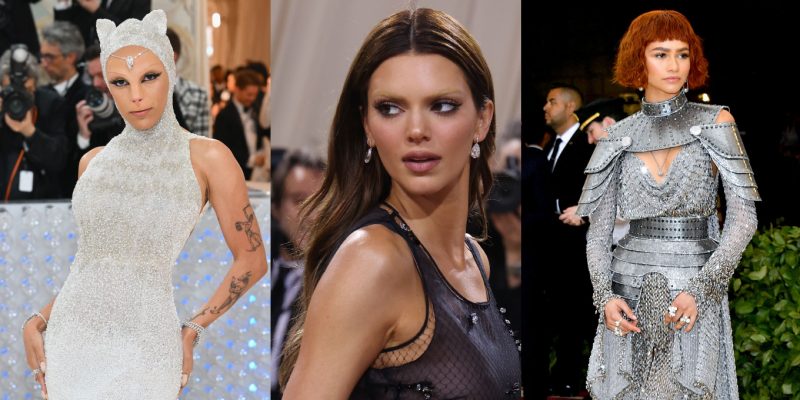
Beauty
The Best Met Gala Beauty Looks Of All Time
From Taylor Swift's 'Bleachella' era to Rihanna's iconic 2011 braids, meet the best beauty moments in Met Gala history.
by : Katie Withington- Apr 26th, 2024
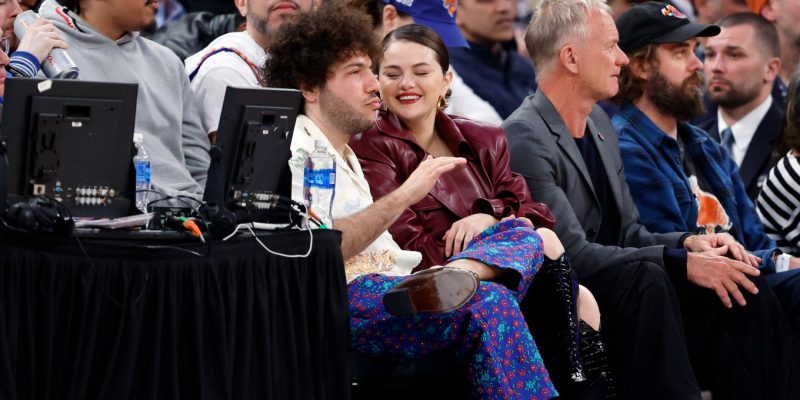
Culture
Benny Blanco Says He Fell in Love With Selena Gomez Without ‘Even Noticing’ It
Allow Benny Blanco to tell the straight-from-a-rom-com story of how he realized his feelings for his girlfriend and longtime friend.
by : Alyssa Bailey- Apr 26th, 2024

Culture
This University Elevates Women to New Professional Heights
You shouldn’t have to pause your life to move forward in your career.
by : ELLE Canada- Apr 16th, 2024

